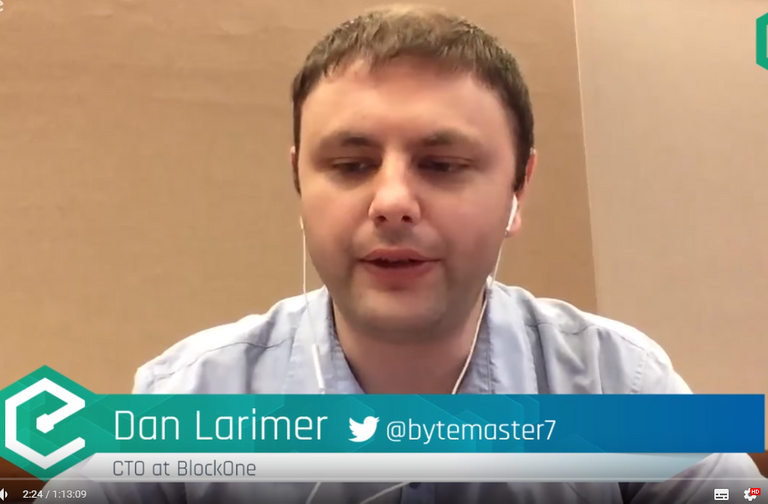The debate
... between Slavoj Zizek and Jordan B Peterson in Toronto on 19 April, 2019 was dubbed "The Debate of the Century". Its theme: "Happiness: Capitalism vs Marxism"
I have offered commentary and analysis on the first part of this remarkable event in a previous post:
Steem Social Lab: the S. Zizek vs J. Peterson debate - part 1
There was a lot to unpack in that 2 hours debate, thoughts which are very relevant:
- for our human society at its current juncture
- for Steem, as a "laboratory" where we are experimenting building elements of a new "society"
If I had to sum up the first part, I would put it like this:
- In order to solve complex problems we need to organize, to create functional social structures
- Stable, balanced social structures need hierarchies (Peterson)
- The source of authority of such hierarchies needs not be utilitarian "competence" but rather some kind of "transcended divinity" (Zizek)
Steem is implicitly generating a new type of organization and that is thrilling to watch.
Yet I make the point that Steem's tribulations spring from the following facts:
- There is no accepted hierarchy on Steem, we are all "free" and "equal", nobody can order anyone else to do something, there's always the "exit" option of leaving the system altogether (and many do so), rather than speaking up and fighting for reform
- There is no commonly accepted "transcended divinity", the overwhelming majority is focused on economic motives, on very Earthly "money"

Collage from sources 1, 2 and 3
What can be done?
Zizek is a very bright mind and he contributed intellectually a lot to the discussion. This time, he didn't claim the title of "communist philosopher", on the contrary he said he's more of a Hegelian.
He notes that he's been invited as a supposedly "Marxist philosopher" but he denies being one. "Who is a Marxist here ? There are no Marxists !" He also points to the fact that, unlike himself, Marx was enthusiastic about the Paris Commune, rather than centralized power
He insisted repeatedly that he was a pessimist and that we should never underestimate the evil and envy we humans are capable of. However, he didn't have much in the way of solutions to offer, aside from the rather vague "new forms of international cooperation".
On an aside note, I would like to know whether blockchain technology could be the missing tool that prevented such "new forms of cooperation" from appearing earlier ...
A true philosopher, Zizek positioned himself as an observer, an analyzer and a commentator. Implicitly, it was apparent he preferred to reflect rather than act ("Philosophical subtlety is lost on people who act")
Individual Responsibility is the path
In contrast, Peterson was determined to state what he considers to be a good solution:
The most effective means to a good life is to adopt a stance of maximum responsibility toward the suffering and malevolence in life
Life is suffering
He agrees with Zizek that "life is fundamentally suffering and malevolence", that "we have our own malevolence to contend with" and that actually "life is so harsh and difficult that even God himself despairs about the essential quality of being" when he clamors My God, my God, why have you forsaken me? (Matthew 27:46 & Mark 15:34)
Meaning rather than happiness
Both Zizek and Peterson dismiss the concept of "happiness" basically from the beginning of the conversation (see part 1 of this commentary). Happiness should be treated as a necessary by-product of a life lived well.
Indeed Zizek stresses the need of an original "fall" in Hegel's thinking on the matter: "You fall and your fall retroactively creates what you fall from" (i.e. happiness). Peterson notes that "you cannot will yourself to be happy (although you can probably will yourself to be unhappy)".
Both Zizek and Peterson agree that the greatest problem society is facing today is, in Peterson's terms, an "intense proclivity for socialized mimicry". People, he says, are possessed by ideas that aren't theirs, by personalities that aren't theirs.
An additional remark from me: with free, global, instant communications, we can rapidly and efficiently assemble global mobs. Flat-earthers and anti-vaxxers are examples of virtual mobs.
Invictus
In contrast to Zizek, Peterson brings a resolutely optimistic message. He forcefully states his conviction that each one of us can, and should engage in a determined actions on a path toward meaning, because walking down that path will not be in vain.
What Peterson recommends is that each one of us start by conceptualizing what "the good" might be. In this respect, he says he has no qualms about saying that the judeo-christian ethic theses are fundamental to the proper functioning of our society. Developing a vision of what "good" might be involves a personalized vision and a vision of good at all levels up to the universalized vision.
Once one has conceptualized what "good" means, the proper beginning of moral behavior is to take responsibility.
It matters not how strait the gate,
How charged with punishments the scroll,
I am the master of my fate,
I am the captain of my soul.
"You do what you should be doing in a manner that expands your capacity to do it even better in the future."
That means continuously encountering the frontiers of one ignorance. Standing on the edge of what one knows. It means working diligently in ensuring that one's action are in keeping with those visions of "good". It entails facing situation when one is tempted to do something one knows to be wrong and succeeding in not doing what's wrong. That's when "true happiness" (meaning) descends upon you.
He references his first book, "Maps of Meaning" where he argues that withing such a frame, by taking personal problems seriously enough, one can also solve social problems at the same time.
This contrasts strongly with the often encountered idea of freedom, which is, especially in the strongly individualistic US culture, seen exclusively as an attribute of the individual, in opposition with almost all the other possible levels of groups of humans. Peterson strongly disapproves the modern idea that "freedom is found in maximizing hedonistic pleasure".
He stresses that doing what's "good for you" is just the beginning , that you should also strive to do what is good for your family and for society and find a pathway that balances these things in a harmonious manner. If you do that, now and then, you might be happy.
Steem and Hegel
I could not help but notice the gap in the underlying philosophy of steem as derived from the vision of Dan Larimer
A system " ... that would give us freedom", that would be a "free market solution for securing life, liberty and property" is a good start but we cannot stop at the individual level.
"Freedom" only makes sense when it has boundaries. This is in direct relationship with Hegel's philosophy
If, for instance, we wish to know what liberty is, we take that concept where we first find it—the unrestrained action of the savage, who does not feel the need of repressing any thought, feeling, or tendency to act.
Next, we find that the savage has given up this freedom in exchange for its opposite: the restraint, or, as he considers it, the tyranny of civilization and law. Finally, in the citizen under the rule of law, we find the third stage of development, namely liberty in a higher and a fuller sense than how the savage possessed it—the liberty to do, say, and think many things beyond the power of the savage.
In this triadic process, the second stage is the direct opposite, the annihilation, or at least the sublation, of the first. The third stage is the first returned to itself in a higher, truer, richer, and fuller form.
Source: Wikipedia
In steem, we are still at the first stage, that of Hegel's "savages" who feel no need to restrict their freedom in any way. A whole lot of discussions are being undertaken in order to find ways to restrict that freedom to act like savages with blockchain code, by tweaking the economics.
Perhaps that could work, although I'm skeptical: if and when the current problems will be solved in the code, people will feel challenged and be enticed to devise new ways to abuse the "new and improved" economics.
We see that happening every decade or so in finance and banking: after each crisis, politicians analyse what needs fixing and create new regulations which address the problems that led to the last crisis.
After the Enron and WorldCom scandals, we had Sarbanes-Oxley. Has that prevented the subprime crisis ? It didn't, but it led to FATCA and other regulations. Have you seen how these mountains of regulations (the real world equivalent of blockchain code) have been keeping us safe from the financial abuses ?
LIBOR crisis, Greek debt crisis, massive money laundering at Danske Bank, is anyone in doubt that each wave of regulation is "fighting the last war" and is seen by the "Haejins" of the real world as a challenge that their smarts can overcome ?
If you think "fixing steem economics" with things such as "downvote pool", "50% curation" and "non-linear reward curve such as N^1.3" will work in the long run you might have also believed that there will be no other financial crisis after the US Congress enacted Sarbanes-Oxley in 2001 and FATCA and co. in 2009 ...
Coming closer from philosophy to modern economics:
North and Thomas asserted that “efficient economic organization is the key to growth” and efficient economic organization entails “the establishment of institutional arrangements and property rights that create an incentive to channel individual economic effort into activities that bring the private rate of return close to the social rate of return.”
Source: Claude Ménard, Mary M. Shirley. The Contribution of Douglass North to New Institutional Economics. 2011. ffhalshs-00624297f
The "social rate of return" is the "private rate of return" (sum of net receipts the economic unit receives from an activity) plus the net effect of that activity upon everyone else in the society.
What is important to underline here is that there are two distinct, independent dimensions: the "private rate of return" and the "social rate of return".
Wrapping up
The path advocated by Peterson and indirectly supported (or at least not refuted) by Zizek is one that places the burden on the individual (rather than the rules and configurations of the system)- to reflect on what's good and what's wrong, for himself and for the group he's part of and then to take personal responsibility and strive to act in ways which are good for him but also for the group he chose to be part of.
Organization, hierarchies and a source of "transcended divinity" help in this process. If you wonder what "a source of transcended divinity" might be, note that a charter and a set of principles has worked wonders in the role of transcended divinity for "Médecins Sans Frontières", a big humanitarian organization with a yearly influx of donations of 1.5 Bln euros and employing 150,000 people.
Conclusion
The joint conclusion of the debate as agreed upon by Zizek and Peterson was to reject the simple opposition implicit in the setup ("Capitalism vs Marxism", "oppressors" vs "oppressed") and to strongly affirm their common belief in the power of communication between people holding different views.

If you know what witnesses are and agree that people commited to keeping this blockchain ticking play an important role ...

(by simply clicking on the picture - thanks to SteemConnect)

Related posts
- Steem Social Lab: we need a "charter"
- Steem Social Lab: the S. Zizek vs J. Peterson debate - part 1
- Understanding blockchain's social impact
- Economic value creation on blockchains: the REAL truth about "Drug Wars" (and other Steem apps)
- How I learned to stop worrying and love the Bid Bots
- Revisiting Steemland: a fairer and more transparent art market as a new "export"
Blockchain, Crypto and Society
- Why Blockchain Is a Revolution
- A New Hope
- Hack Your Life in 3 Easy Steps!
- The Holy Blockchain
- Blockchain revolution: Money and Credit
- Small worlds
- The Press needs to be Freed from the Tyranny of Money
- Blockchain and the End of the Western Civilization
- The Church of Bitcoin
- The Ressolid Project
Other posts you might enjoy:
Steem ecosystem
- Help Yourself! (steemit for dummies)
- Steem crypto-economics
- Best way to Grow on Steemit
- Turn up the Heat! Steem Luxembourg
- Spammers gonna spam - focus on original content!
- The best time to publish is now
- Historic evening: first beer paid with SBD in Luxembourg (+ Fr)
- Steem $10Bln!
- Setting up a new Witness Node!
- Why would anyone burn a bear? - SteemFest 3
- Steemit and the Fractal Society
- Crypto-contradictions
- Game Theory 101 - Schelling point or "Why Steemit.com is important"
- Game Theory 102 - Blockchain and Cooperative Games


Let’s get Jordan onto steem
Yes, that would be mega cool. Only Steemit inc. could pull that off
A tl;dr would be nice.
Let me try:
Living a fulfilling life, reaching one's potential is very hard, we harbour a lot of evil in ourselves and are quick to do harm to others. What's to be done then ? Choose a set of values, a moral (and Peterson hints that the typical judeo-christian moral values are not a bad choice at all). Then strive to act consistently in accordance with those values but be always on the brink of learning something new, of improving yourself, of pushing the boundaries of your understanding of "good" and "bad".
I think these teachings could do a lot of good if they were applied by steemians. I think what many young people who jumpstarted the blockchain revolution (Dan Larimer included) failed to acknowledge that there is a fundamental trade-off between individual freedom and social welfare, that while trying to maximize the former, you reach a point where it comes at the expense of damaging the latter.
Freedom has a price and should have boundaries. My freedom should stop where your freedom starts. This implies that I need to always be open to notice the beginning of your freedom and stop there, not trespass...
People are still learning and adjusting to the Steem ecosystem.
Best way forward is to align rewards with value added. The current ecosystem fails to do that. After a few code changes things will be running a lot better.
Posted using Partiko Android
For me, that won't ever be enough. That's what I try (and obviously fail) to convey in this commentary. No code changes will ever be enough. We need a stabilizer, a common set of values that sets the scene, the boundaries of freedom. This has to be external to the code, in the "wet" layer (Nick Szabo vocabulary), in the social layer
Beautiful guys, most interesting topic, i missed your first episode of this, super nice post, tkx
Posted using Partiko Android
Thanks !
Excellent and well thought out post, thank you! :)
you're welcome ! :-)
Don't understand
Posted using Partiko Android
Yeah lol. Blah Blah Blah lol.
Cool, they came to a good conclusion, kind of philosophical happy end - and they communicated respectfully and fruitfully ever after.
You got a 13.07% upvote from @minnowvotes courtesy of @steemium!
About 155.65$ has been spent to promote this content using Steemium.
Learn more here!
This post has received a 77.97 % upvote from @boomerang.
You got a 76.53% upvote from @spydo courtesy of @steemium! We offer 100% Payout and Curation.
@steemium purchased a 69.46% vote from @promobot on this post.
*If you disagree with the reward or content of this post you can purchase a reversal of this vote by using our curation interface http://promovotes.com
Great Post Ethereum 2.0 Highlights
Hi @sorin.cristescu!
Your post was upvoted by @steem-ua, new Steem dApp, using UserAuthority for algorithmic post curation!
Your UA account score is currently 6.797 which ranks you at #110 across all Steem accounts.
Your rank has improved 1 places in the last three days (old rank 111).
In our last Algorithmic Curation Round, consisting of 166 contributions, your post is ranked at #73.
Evaluation of your UA score:
Feel free to join our @steem-ua Discord server
Congratulations @sorin.cristescu!
Your post was mentioned in the Steem Hit Parade in the following category:
You got a 73.73% upvote from @joeparys! Thank you for your support of our services. To continue your support, please follow and delegate Steem power to @joeparys for daily steem and steem dollar payouts!